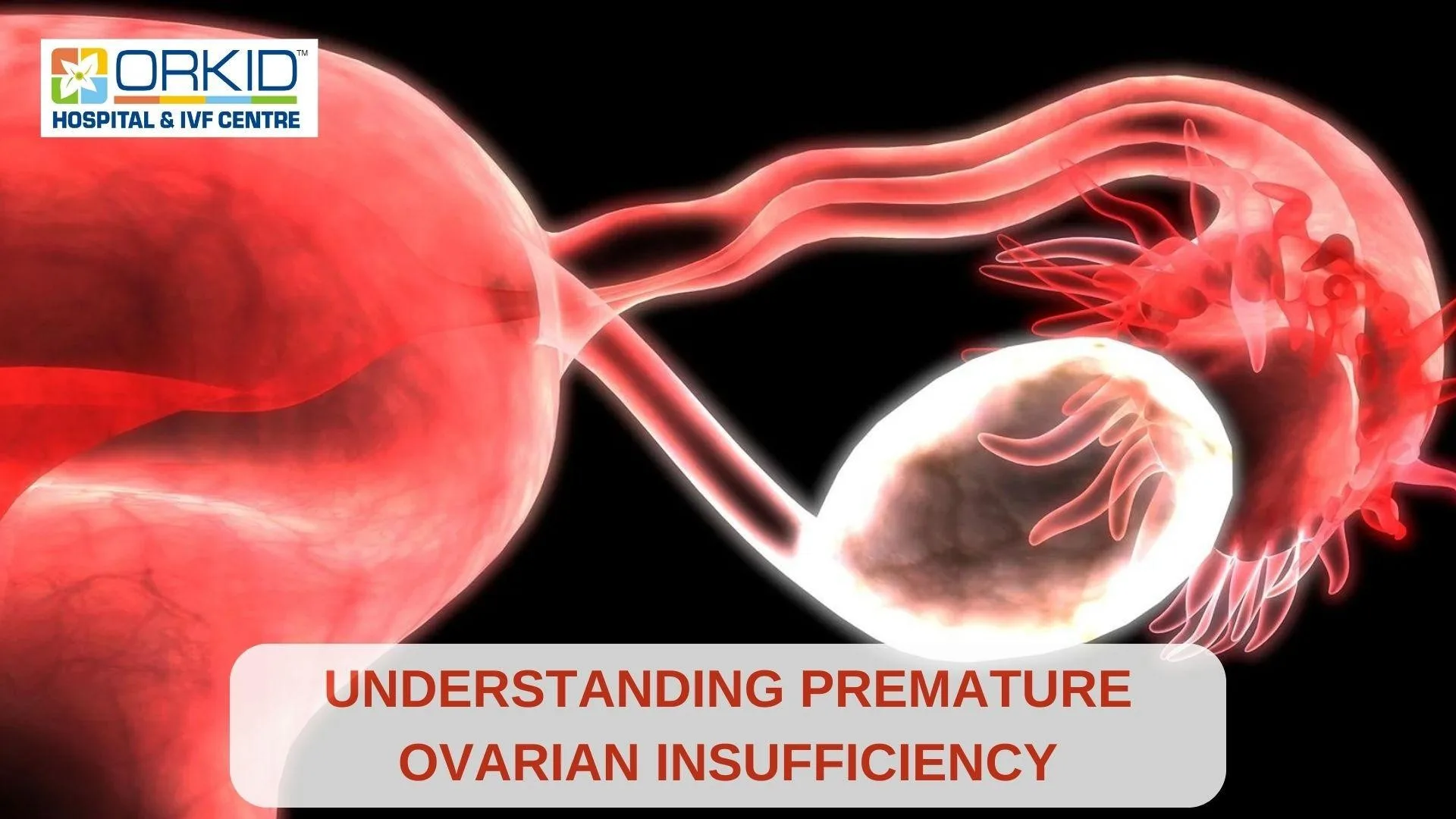Premature ovarian insufficiency (POI) is a condition where the ovaries stop functioning normally before the age of 40. This means they stop producing eggs and essential hormones, leading to early menopause symptoms and fertility issues. POI can be a shocking and emotional diagnosis for many women. However, understanding its causes, symptoms, and treatment options from one of the best gynaecologists in Surat, Dr Kajal Mangukiya, can help in managing the condition effectively.
What is Premature Ovarian Insufficiency?
Premature ovarian insufficiency, sometimes called premature menopause, differs from natural menopause. In natural menopause, the ovaries gradually produce fewer hormones until they stop completely, usually around the age of 50. In POI, this process happens much earlier, often in a woman’s 20s or 30s, and sometimes even in her teens.
While natural menopause is irreversible, POI can sometimes be temporary. Fertility experts from Orkid Hospital & IVF Centre, one of the best infertility hospitals in Surat, have seen in rare cases where women with POI might still ovulate occasionally and even become pregnant.
Causes of Premature Ovarian Insufficiency
The exact cause of POI is often unknown, but several factors can contribute to the condition:
1. Genetic Factors: Some women inherit genetic mutations that affect ovarian function. Conditions like Turner syndrome and Fragile X syndrome are linked to POI.
2. Autoimmune Disorders: In some cases, the body’s immune system mistakenly attacks the ovaries, leading to POI. This autoimmune response can also affect other glands, like the thyroid.
3. Cancer Treatments: Chemotherapy and radiation therapy, especially when directed at the pelvis, can damage the ovaries. The risk of POI increases with the intensity and duration of treatment.
4. Surgery: Surgical removal of the ovaries or other pelvic surgeries can lead to POI. Women undergoing surgery for conditions like endometriosis or ovarian cysts are at higher risk.
5. Environmental Factors: Toxins like cigarette smoke, pesticides, and certain chemicals can contribute to early ovarian failure.
6. Infections: In rare cases, infections such as mumps can lead to ovarian damage and POI.
Symptoms of Premature Ovarian Insufficiency
The symptoms of POI are similar to those of menopause but occur at a much younger age, say the experts at Orkid Hospital & IVF Centrel, which is renowned as one of the best IVF centres in Surat. These can include:
– Irregular or Missed Periods: One of the first signs of POI is irregular menstrual cycles. Periods may become lighter, less frequent, or stop altogether.
– Hot Flashes and Night Sweats: These sudden feelings of heat, often accompanied by sweating, are common in women with POI.
– Vaginal Dryness: Lower oestrogen levels can cause the vaginal walls to thin and dry out, leading to discomfort during intercourse.
– Decreased Libido: Hormonal changes can reduce sexual desire and arousal.
– Mood Swings and Depression: POI can affect mental health, leading to mood changes, anxiety, and depression.
– Difficulty Sleeping: Sleep disturbances, often linked to night sweats or anxiety, are another common symptom.
– Infertility: One of the most challenging aspects of POI is the difficulty or inability to conceive naturally. Many women with POI struggle with infertility.
Diagnosis of Premature Ovarian Insufficiency
Diagnosing POI involves several steps. If you have irregular periods or other symptoms, visiting a doctor, preferably one of the best gyno in Surat, is a start. She will likely start with a physical exam and ask about your medical history. Blood tests to measure hormone levels, particularly follicle-stimulating hormone (FSH) and estradiol, are crucial in diagnosing POI. High FSH levels and low estradiol levels indicate reduced ovarian function.
Your doctor might also suggest an ultrasound to examine the ovaries or a genetic test to look for chromosomal abnormalities. In some cases, an autoimmune screening may be performed to check for related conditions.
Treatment Options for Premature Ovarian Insufficiency
While there is no cure for POI, several treatment options can help manage symptoms and improve quality of life. Specialists from Orkid Hospital, one of the best test tube baby centres in Surat recommend:
1. Hormone Replacement Therapy (HRT): HRT is the most common treatment for POI. It involves taking oestrogen and progestin (or progesterone) to replace the hormones your ovaries no longer produce. HRT can relieve symptoms like hot flashes, vaginal dryness, and bone loss. However, it’s essential to discuss the risks and benefits with your doctor, as HRT is not suitable for everyone.
2. Calcium and Vitamin D Supplements: Women with POI are at higher risk for osteoporosis due to lower oestrogen levels. Calcium and vitamin D supplements, along with regular exercise, can help maintain bone density.
3. Fertility Treatment: If you want to conceive, fertility treatments may be an option. While the chances of natural pregnancy are low, assisted reproductive technologies like in vitro fertilization (IVF) with donor eggs offer hope to many women with POI.
4. Lifestyle Changes: Healthy lifestyle habits can help manage symptoms and improve overall well-being. Regular exercise, a balanced diet, stress management, and quitting smoking can make a significant difference.
5. Counselling and Support Groups: Receiving a POI diagnosis can be emotionally challenging. Counselling and support groups can provide valuable emotional support and help you cope with the changes.
6. Alternative Therapies: Some women find relief from POI symptoms through alternative therapies like acupuncture, herbal supplements, or yoga. Always consult your doctor before starting any new treatment.
Living with Premature Ovarian Insufficiency
Living with POI can be challenging, but it’s important to remember that you are not alone. Many women experience this condition and lead fulfilling lives with the right support and treatment. Regular check-ups with your healthcare provider at the best IVF hospital in Surat are essential to monitor your health and adjust treatment as needed.
Emotional support is also crucial. Connecting with others who understand what you’re going through can make a big difference. Whether through online forums, local support groups, or counselling, finding a community can help you navigate the ups and downs of living with POI.
Conclusion
Premature ovarian insufficiency is a complex condition that affects many aspects of a woman’s life, from her reproductive health to her emotional well-being. Understanding the causes, recognizing the symptoms, and exploring treatment options can empower you to take control of your health. While POI presents unique challenges, with the right care and support, you can manage your symptoms and live a full, healthy life.


